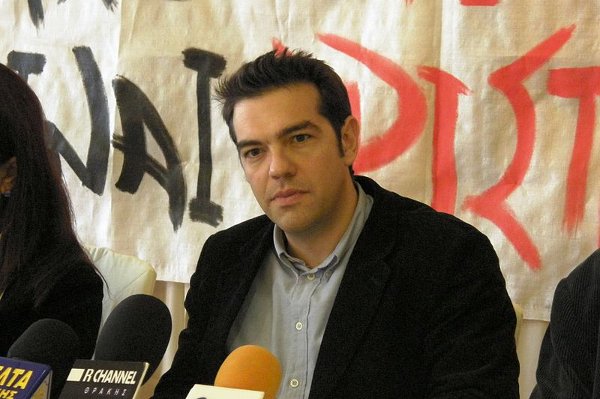How Syriza Rose to Power in Greece

Radical left Greek party Syriza didn't win the election yesterday but did come in second with a highly respectable 26%. They did this by grassroots organizing over several years. (The center-right New Democracy Party won with 30%.) But Syriza, which was scarcely more than a blip a few years ago, is now assured of being a political force in Greece (and the Eurozone, assuming Greece stays in it) for the foreseeable future. The New Democracy Party may be ruling Greece, but the strong showing by Syriza will be a persistent thorn in the side for the neo-liberal agenda of austerity in the Eurozone. Even New Democracy says terms of Greek bailout will need to be renegotiated. This is almost certainly due in large part to Syriza and their opposition to neo-liberalism.
How Syriza rose to power is an instructive tale for organizers regardless of their politics. After all, more than a few organizers on the US right have read Saul Alinsky’s Rules for Radicals and applied them in their organizing. His rules aren’t left-wing at all. Instead they are about how to build community power into political power, because politics at core is about getting power then using it.
Syriza began in 2004 as a coalition of thirteen left-wing radical groups, including the Green Left, Democratic Socialists, and various communist factions. They united around shared objectives while realizing they would have differences on other issues. This was crucial to their success. Genuine coalitions realize their members will have differences on non-core issues. But the goal is always to focus on core issues, in this case opposition to anti-terrorism legislation and against the dismantling of pensions and social security.
They were also a real coalition, composed of genuine member groups who often would squabble before arriving at a path of action. This is healthy. This is what politics should be about. Contrast this against US anti-war coalitions of recent memory which were controlled by a single faction with ulterior motives. Front groups like that generally fail because they are pretend constructs. Groups like Syriza can thrive because they have real roots in real communities.
Syriza has been able to attract the support of working class and some middle class Greeks, and continues to do so. It is an example of a relatively inclusive political organization that, because of its focus upon the intensifying economic distress of Greeks, has become more and more influential.
Every grassroots organizer regardless of politics should take this to heart. Grassroots organizing must be inclusive and it must concern issues that people care about. People should be encouraged to join and to participate. Hidden agendas or blocking people from becoming leaders because of doctrinal differences will only hurt your cause. Instead, you need to attract and recruit members from all walks of life with no preconceptions about who they might be. There are plenty of left-wing rednecks who live in rural areas, contrary to the misconceptions of too many urban lefties (and of course there are hardcore right-wingers in Berkeley CA too!)
So, grassroots organizers need to look everywhere for recruits and to genuinely allow them to be part of the organization. That’s how grassroots power grows into political power. Syriza has shown the world how to do it.



